Can You Freeze Cucumbers?
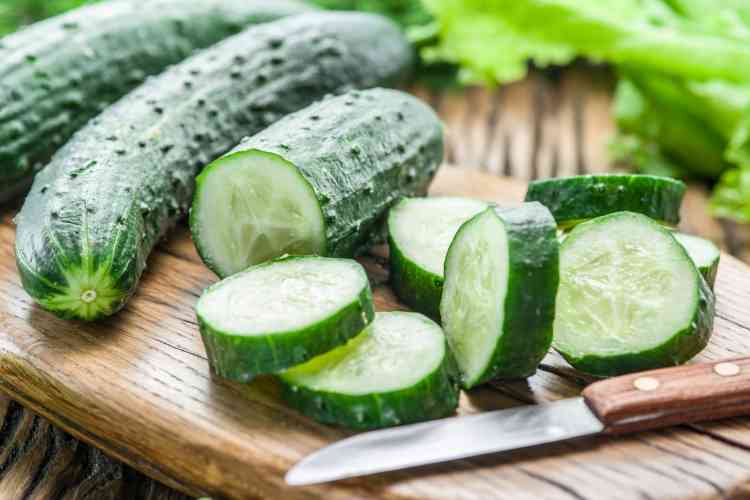
Have you ever found yourself with an abundance of fresh cucumbers and wondered: “Can you freeze cucumbers?" This common question might pop-up if you’ve grown a lot in your vegetable garden or done a hefty farmers market haul.
While cucumbers are typically enjoyed fresh, the idea of preserving their crispness and extending their shelf life through freezing is intriguing and worth exploring. So, can you freeze cucumbers? In this guide, we’ll answer that question while also helping you learn how to freeze cucumbers with minimal taste and texture changes.
Can Cucumbers Be Frozen?
“Can you freeze cucumbers?” is a question you might want answered if you can’t get enough of this summer salad staple. Whether you have English cucumbers, mini cucumbers or any other variety, yes, cucumbers can be frozen, making it easy to store them when you have too many.
However, can you freeze cucumbers without them becoming too soggy when they defrost? The answer to this is a little more complicated. During freezing, the texture of cucumbers will change, primarily due to their high water content. While they will never be as crisp when frozen and defrosted as they are when fresh, properly preparing and storing frozen cucumbers can help limit the texture change. In terms of taste, they will retain their taste when frozen and defrosted.
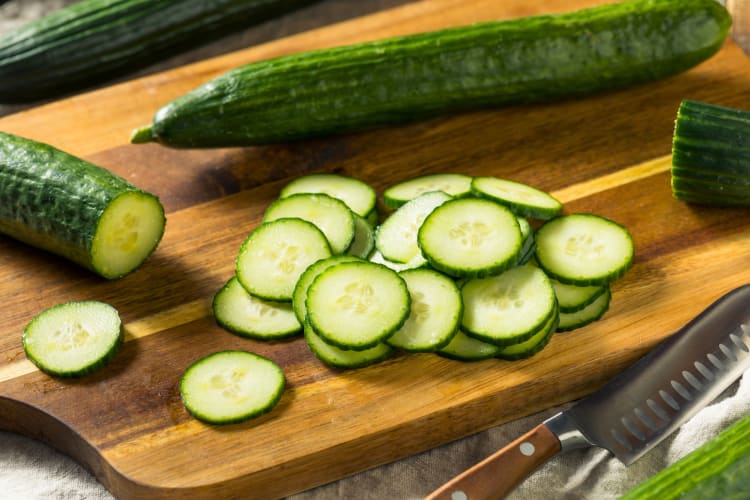
Can You Freeze Cucumbers Whole?
Now you know you can freeze cucumbers in general, you may want to know: “Can you freeze cucumbers when they are whole?” Yes, you can freeze a whole cucumber, but that crisp consistency may be compromised, becoming softer and somewhat mushy, which might not be ideal for fresh use in recipes like salads.
Therefore, it's recommended to use frozen whole cucumbers in blended dishes once defrosted, such as in soups or smoothies. Additionally, consider brining the cucumbers briefly before freezing to help preserve their color and flavor.
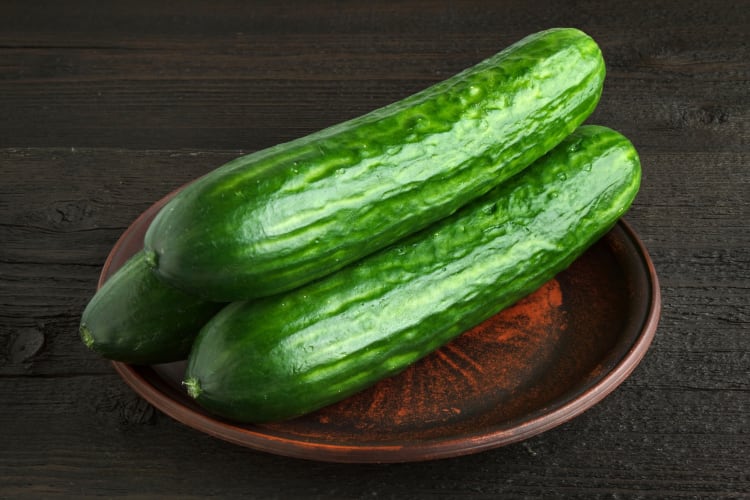
Can You Freeze Cucumber Slices?
If you’re trying to figure out: “Can you freeze cucumbers when sliced?”, the answer is technically yes. However, it's not recommended to freeze cucumbers as slices if you plan to use them in salads or other fresh dishes because freezing can change their texture and make them mushy when defrosted. If you intend to use them in blended dishes, such as soups or dips, or even drinks like a cucumber martini, where texture isn't as crucial, freezing sliced cucumbers can be a convenient option. Slicing cucumbers before freezing will also decrease thawing time compared to whole cucumbers.
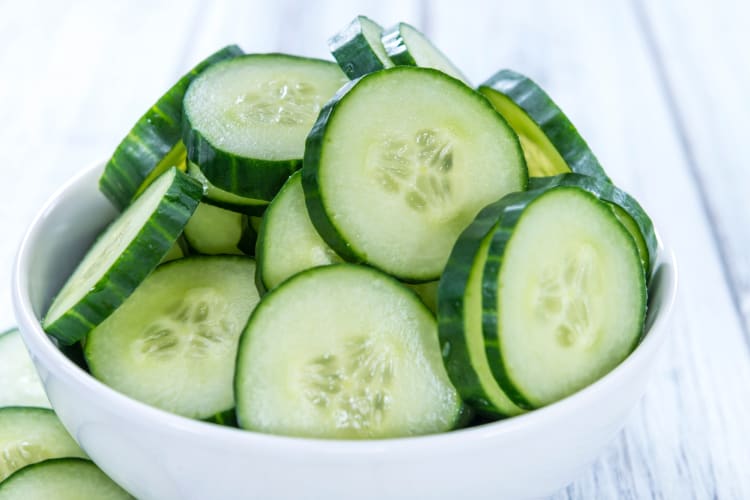
Can You Freeze Cucumber Juice?
You may also wonder if you can freeze cucumbers when they have been juiced. Cucumber juice is another cucumber product that can be frozen for consumption later on. To freeze cucumber juice, transfer it into ice cube trays or airtight containers, leaving some room for expansion, as liquids expand when frozen. Seal the containers tightly and label them with the date of freezing.
Frozen cucumber juice can be stored for up to six months. When ready to use, defrost the juice in the refrigerator overnight. If you have made the juice yourself and haven’t strained it, make sure you do that before freezing, unless you want the pulp included in the juice.
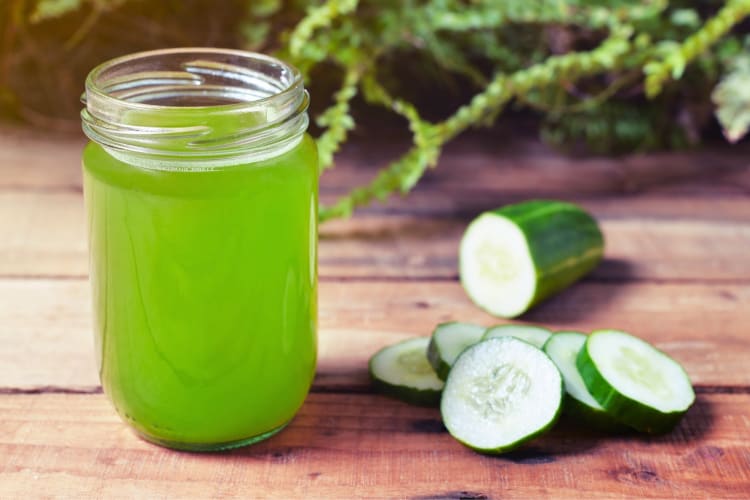
Can You Freeze Cucumbers for Smoothies?
Adding cucumbers to smoothies is a great way to add some extra vitamins and make your beverage more hydrating. Conveniently, you can freeze cucumbers for use in smoothies.
To freeze cucumbers for smoothies, wash and dry them thoroughly, then slice or chop them into the desired size. Lay the cucumber pieces on a baking sheet in a single layer and place them in the freezer until they are solid. Once frozen, transfer the cucumber pieces to an airtight container or a freezer bag, removing as much air as possible to prevent freezer burn.
Frozen cucumbers retain their nutritional value and are perfect for adding a cool, refreshing touch to smoothies. While their texture changes and becomes softer, this doesn’t affect their use in blended drinks.
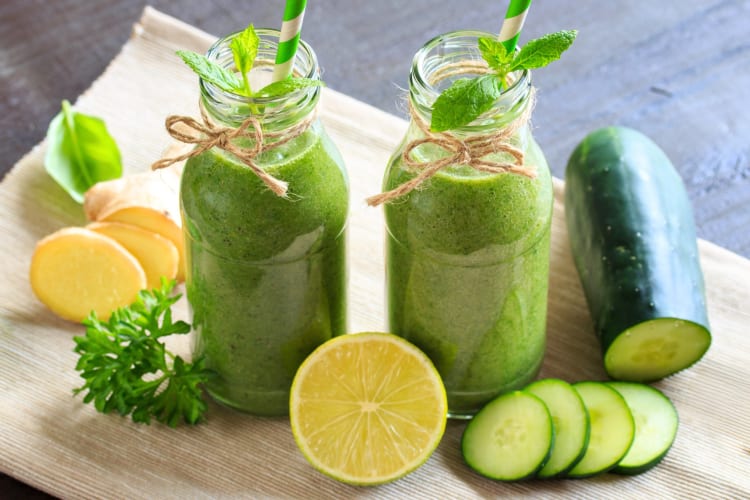
Can You Freeze Cucumber Salad?
Cucumbers, due to their high water content, tend to become mushy and lose their crispness when frozen, making them less than ideal candidates for freezing. While you can technically freeze cucumber salad, it isn’t recommended.
The result probably won’t be satisfactory as the texture and flavor will be compromised upon defrosting. If you're aiming for a crunchy and refreshing salad, it's best to enjoy it fresh rather than attempting to freeze it. You’ll also want to look into if you can freeze any other ingredients that are in the salad before going ahead with it.
If you’re looking to freeze cucumber salad to always have some on hand, instead of because you have too much, you may want to brine cucumbers for freezing. This involves mixing them in an oil, vinegar and sugar solution before freezing. You then have zesty cucumber slices ready to thaw and add to your salad.
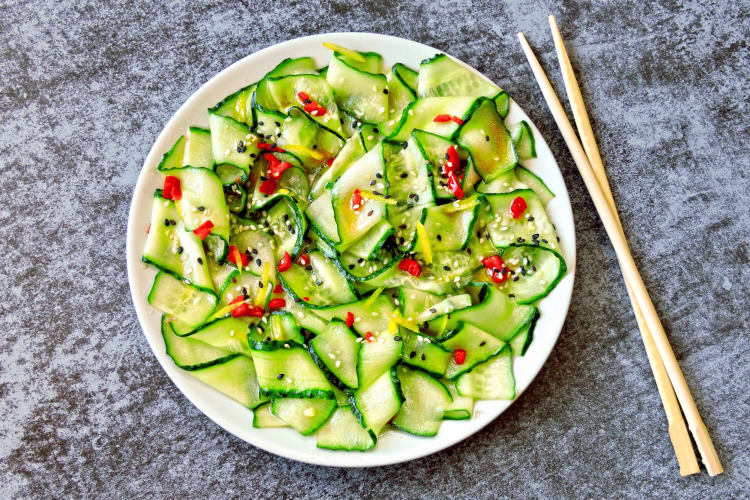
How To Freeze Cucumbers
Now that you know the answer to the question, can you freeze cucumbers? The next thing to learn is how. The methods for freezing cucumbers are effective but differ in result, so it depends on what you want to use them for. While it’s optimal to chop or slice most fruits and vegetables before freezing, it’s actually often recommended to freeze cucumbers whole instead of cutting them up.
However, if you want to freeze them chopped or sliced, this is possible. Whether you go for whole or cut-up cucumbers, flash-freeze them until they are frozen solid before transferring them to freezer-safe bags or containers for longer-term storage in the freezer.
You can also brine cucumbers for freezing or purée them before placing them in ice cube trays or freezer-safe bags. Puréeing is an excellent method if you want to use your frozen cucumbers in smoothies or soups. Lastly, you could freeze sliced cucumbers in water or soda like lemonade, along with other ingredients if desired, such as lemon or mint, to create flavorful ice cubes to add to drinks.

How To Freeze Cucumbers Whole
To freeze whole cucumbers, start by thoroughly washing them to remove any dirt or contaminants. Pat them dry completely, as excess moisture can lead to freezer burn. Once dry, place the cucumbers on a baking sheet in a single layer, ensuring they are not touching each other. Freeze them until they are solid, which usually takes several hours.
Afterward, transfer the frozen cucumbers into airtight freezer bags or containers. Properly stored, whole frozen cucumbers can last for months at a time. However, it's important to note that freezing can alter the texture, making them less crisp and more suitable for recipes where they will be blended or cooked rather than eaten fresh.
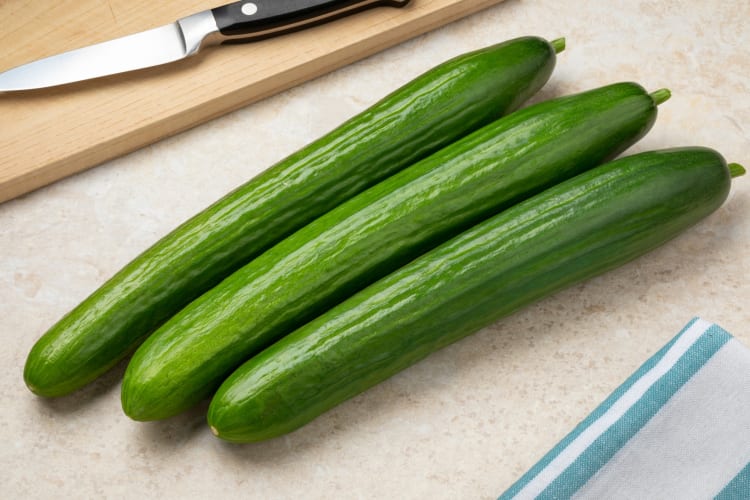
How To Brine Cucumbers for Freezing
Along with flash-freezing, you may want to brine cucumbers for freezing. This involves slicing the cucumbers, with or without the peel, and then mixing them in a bowl with sliced onions and two tablespoons of salt. Leave this mix for around two hours before washing the cucumber slices with cold water. Next, add two-thirds of a cup each of olive oil, apple cider or white vinegar and sugar, then add the cucumber mix to freezer bags and freeze.
This recipe will add a sweet and sour flavor to your cucumbers, so will not be an appropriate method if you want to use frozen cucumbers in smoothies or other dishes. However, if you have some extra cucumbers with no plan on how to use them, brining them creates a delicious pickled vegetable that you can grab from the freezer and enjoy as a snack whenever you want.
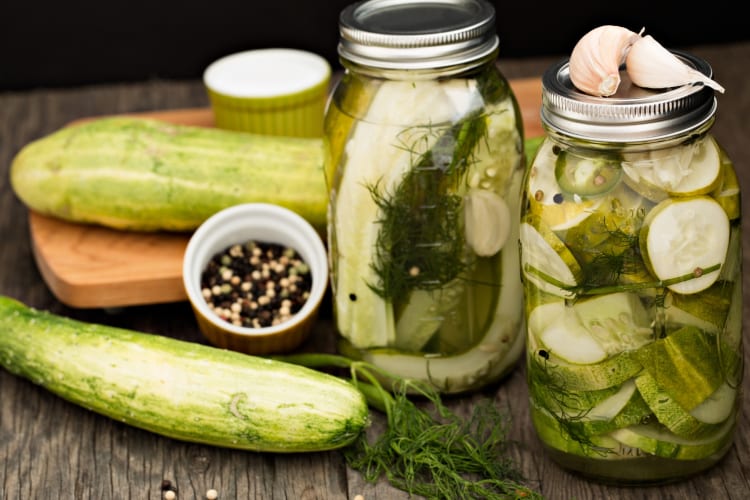
How Long Can You Freeze Cucumbers?
So, now you know the answer to “Can you freeze cucumbers?”, how long can you freeze cucumbers for? When stored properly, frozen cucumbers can last between six and nine months. However, the longer they are frozen, the more their texture will change, making them more suitable for smoothies, soups or other blended dishes rather than fresh dishes, such as salads or sandwiches.
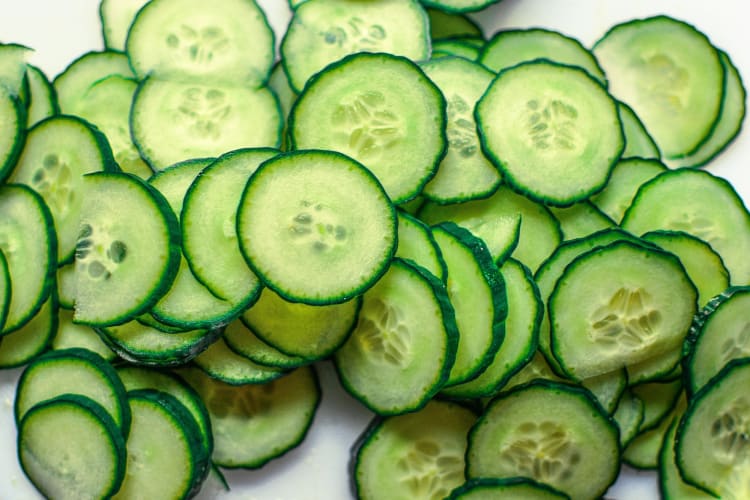
What To Do With Frozen Cucumbers
Frozen cucumber recipes offer a refreshing twist to a variety of dishes, including smoothies, cold soups and cocktails. Because of the high water content of cucumbers and the change in texture that occurs in the freezer, incorporating frozen cucumbers into blended recipes is your best bet.
Excellent frozen cucumber recipes to try include cucumber dip and similar tzatziki, cucumber gazpacho and cucumber smoothies. You can also add frozen cucumbers to cocktails and mocktails or just add them to a glass of water for a refreshing boost.
As cucumber is one of the more challenging ingredients to incorporate into dishes, taking some cooking classes near you or online cooking classes is an excellent way to learn how to cook with this versatile ingredient. Once you’ve mastered some refreshing new cucumber dishes, these recipes are sure to become a staple of your repertoire.

How To Defrost Frozen Cucumbers
Having established that you can freeze cucumbers, how do you defrost them when you’re ready to use them? To defrost frozen cucumbers, transfer them from the freezer to the refrigerator and let them thaw slowly overnight. This gradual thawing process helps preserve their crunchiness and prevents them from becoming too mushy.
Once defrosted, gently pat them dry with a paper towel to remove excess moisture. By following these steps, you give frozen cucumbers the best chance of retaining their quality. If adding frozen cucumbers to the blender to make cucumber soup or smoothies, you can generally add them frozen without needing to defrost. The same goes for cucumbers that have been frozen for use in drinks.
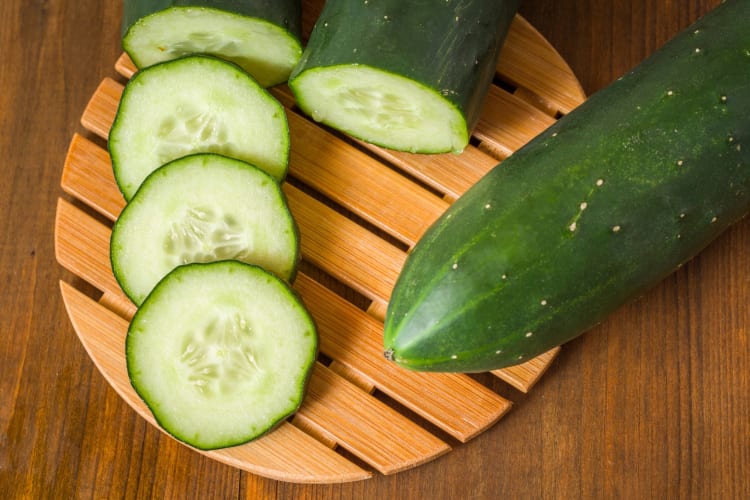
While the question: "Can you freeze cucumbers?" might initially seem straightforward, the answer reveals a nuanced approach to preserving their freshness. Yes, you can freeze cucumbers, but their texture and taste may change, making them best suited for smoothies, soups or infused waters rather than salads. However, with this information in hand, you’ll be prepared to properly freeze cucumbers and use them in an array of delicious and refreshing dishes and beverages.
For even more ways to explore your favorite foods, check out other experiences happening on Cozymeal.
